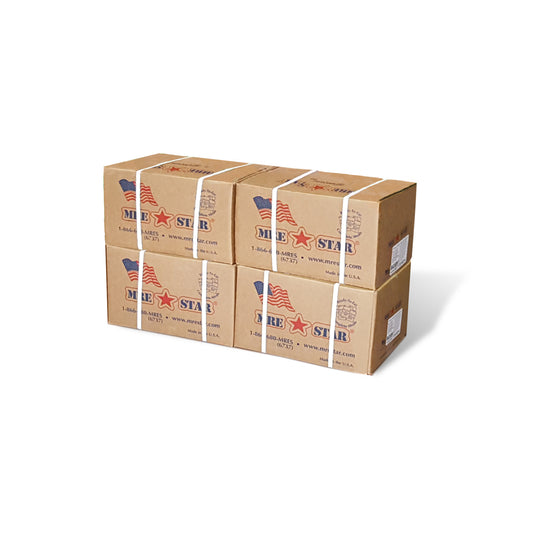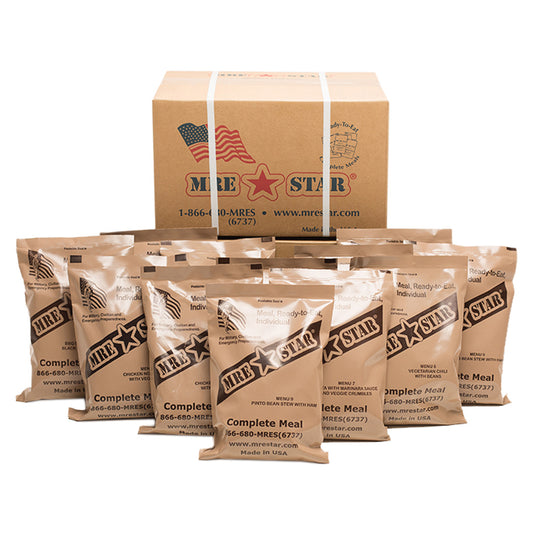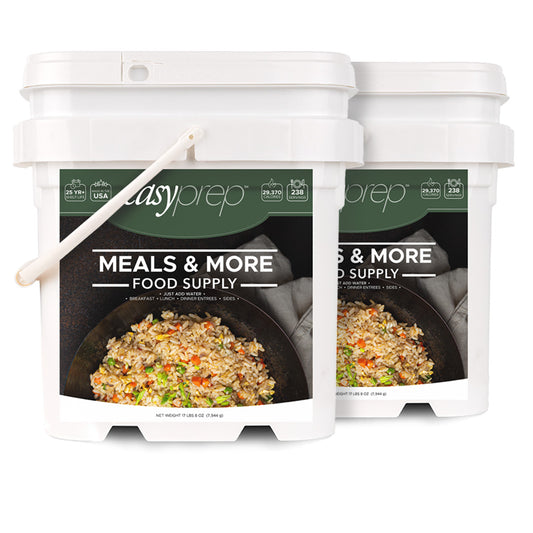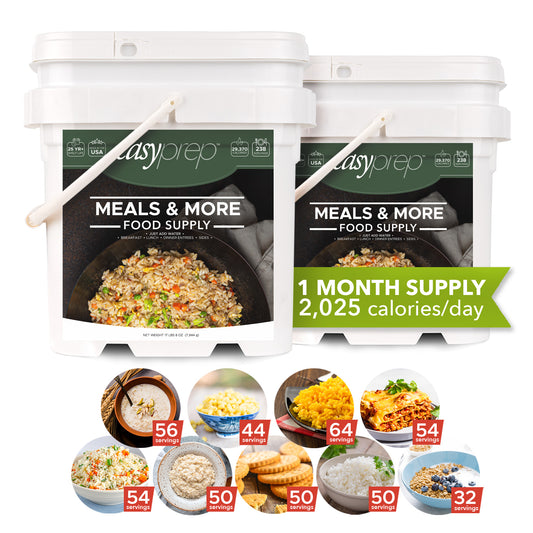A Guide to Raising Rabbits
Rabbits can be an excellent source of protein, and three does and a buck rabbit can produce more meat in a single year than a cow can, and can provide all the protein requirements for a family of four. 
Rabbits are fairly simple animals to raise, do not have very large space requirements, and as such are an excellent option for homesteaders. In the wild, rabbits are a major source of food for many different predators. There, the rabbit’s key to survival is its remarkable ability to reproduce quickly. This is precisely why rabbits are such an excellent option for self-sufficient living.
For new breeders, starting with one buck rabbit and three does is a manageable number. This way you can see how well you like raising rabbits and still produce as many as 100 fryers each year. Before you have decided you like raising rabbits, the first step is to determine whether or not your local zoning permits doing so. While rabbits can be raised easily in even an urban setting, zoning may prohibit raising them for food. Check with your municipal and county planning commissions.
Breed Selection
Rabbits come in many different sizes, colors and capabilities. You’ll want to be sure to choose a breed that fits your circumstance and goals. While there are more than 38 recognized rabbit breeds, not all of them are best for meat production or their fur.
For the best meat rabbits, the New Zealand White is probably the best choice. It is a very popular rabbit and that means it will be easy to acquire. The Californian is another excellent meat rabbit. These breeds develop quality meat and consistently produce large litters. White-furred rabbits are usually preferable because they produce pelts that can be dyed and are therefore more marketable.
Rabbit breeds are grouped into four fur types: Normal, satin, rex, and angora. Normal fur has a dense undercoat protected by longer guard hairs. Satin fur is finer than normal fur, and has a luster or sheen to it. Rex fur is very dense and the guard hairs are the same length as the undercoat, giving it a plush feeling. Angora has the long, wool-like fibers that are used in the manufacture of clothing.
Housing
Rabbits can be housed in runs or in hutches. Runs are simple long cages that sit on the ground, typically outdoors. Hutches have a somewhat more sturdy construction. You will want to make sure your rabbit housing situation is completely squared away before you acquire the rabbits. That means making sure you have your runs or hutches constructed and ready to go before you even order or purchase your rabbits.
Consider where you live when you are designing the housing unit. If you live in a hotter climate, provide fans or some other kind of ventilation or cooling to keep the rabbits comfortable. On hot days, it can be a good practice to provide the rabbits with frozen water bottles to help them stay cool. In cooler climates, your hutches will need to be protected inside a building that stays above 50°F. 
Feed
The feeding system should be designed to efficiently use commercial pelleted feeds. Feeding rabbits pellets allows for a simple, manageable means of providing the animals with their complete nutrient needs. They can be ordered wholesale and will keep if stored properly for a number of years. Feeders attached to the sides of hutches allow for the rabbits to self-feed and allows for fast growth.
In the event that you do not have access to or prefer not to use pelleted feed, there are other options. You can feed rabbits hay and alfalfa as well as the occasional garden green. Grass hay is typically higher in fiber and lower in protein, while alfalfa hay is higher in protein and lower in fiber. Fruits and vegetables also provide variety and additional nutrition to the rabbits, but you should provide these as supplements to the diet rather than make them the bulk of it.
It’s important to make sure that once you choose a dietary regimen, you stick to it. You should never abruptly change form one type of feed to another. Rabbits need continuity in their diets.
Health
More than anything else, the health of your rabbits will depend on the cleanliness of their conditions. Maintaining a clean hutch or rabbit run is critical to keeping them healthy.
Keep your cages clean and disinfect them occasionally; empty the trays regularly; keep your nest boxes tidy; wash waterers and feeders regularly. These simple steps can keep your rabbits much healthier than they otherwise would be. Generally, rabbits are very healthy creatures when they are kept in a clean environment. One concern to keep an eye on is parasites. Internal parasites can include coccidia, pinworms, and tapeworms. They are difficult to spot until after you have harvested the meat, and they make the meat unsuitable for consumption. The best way to prevent intestinal parasites is with proper cage sanitation.
External parasites are easier to spot, and include ear mites, fur mites, and fleas. The local veterinarian will be able to provide remedies for these and other visible health concerns. Until you can consult with them, quarantine any affected rabbits to prevent spread.
Harvest
Rabbits are ready for harvest just eight weeks after being born. You should consider your rabbits as a crop, like what you grow in your garden.
Slaughtering a rabbit is very similar to killing a chicken or dressing a duck or deer shot in the wild. While it is not pleasant, after the first rabbit or two, it will become fairly routine. Your goal should be a quick painless kill, followed by an efficient dressing routine that preserves the quality of the meat. The slaughter location should have access to running water, be well organized, and kept clean and sanitary. It’s best to have someone experienced in harvesting and dressing rabbits help you the first time.
Your Tips and Tricks
Have you raised rabbits? What advice do you have for others who are just starting out? Comment below and share your advice.













